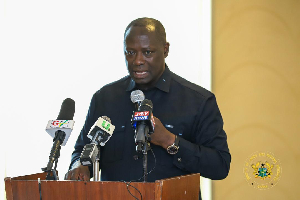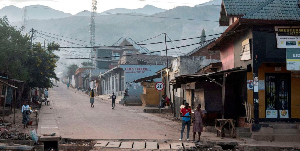Chief Advisor at the Ministry of Monitoring and Evaluation, Andrews Assibey, has said while the New Patriotic Party (NPP) is committed to implementing may of the pro-poor projects under the Infrastructure for Poverty Eradication Programme (IPEP), four years is not enough to achieve that.
Mr Andrews Assibey made the comment when he joined the Ghana Centre for Democratic Development (CDD-Ghana) to disseminate the findings of a study that tracked the IPEP implementation.
“It is a very short time frame that the government has to deliver. Four years are not enough and so in trying to circumvent the system, other problems are created. So, it may not necessarily be an attempt to weaken the bureaucracy, really. But it is an attempt to deliver in order to satisfy key constituents,” Mr Assibey said.
The CDD-Ghana report found that many of the projects monitored in 20 out of the 275 constituencies could not be completed.
Also, the implementation of the projects lacked local content.
Reacting to the findings, Mr Assibey said the Ministry of Monitoring and Evaluation has done a review of the IPEP in a way that delved deeper on a specific project than a general overview.
According to him, had CDD-Ghana done a similar study, it would have come out with a different finding.
“What we did was not to take a broad brush but to focus on one aspect of the programme…and the report is there. We are willing to share it. Part of the challenge in doing a broad brush of the programme is that there is a tendency to move too fast and not look at some of the rationales behind the projects.
“Implementation challenges are the norm in every project. It is how you manage those challenges which will determine the success or otherwise of the project. I think it is good to focus on the implementation challenges but there are some milestones of deliverables initially which should also have been looked at. Because it is not a zero-sum game. You need to find out what are these challenges and what were the efforts to overcome these challenges,” he said.
General News of Thursday, 17 September 2020
Source: www.ghanaweb.com













